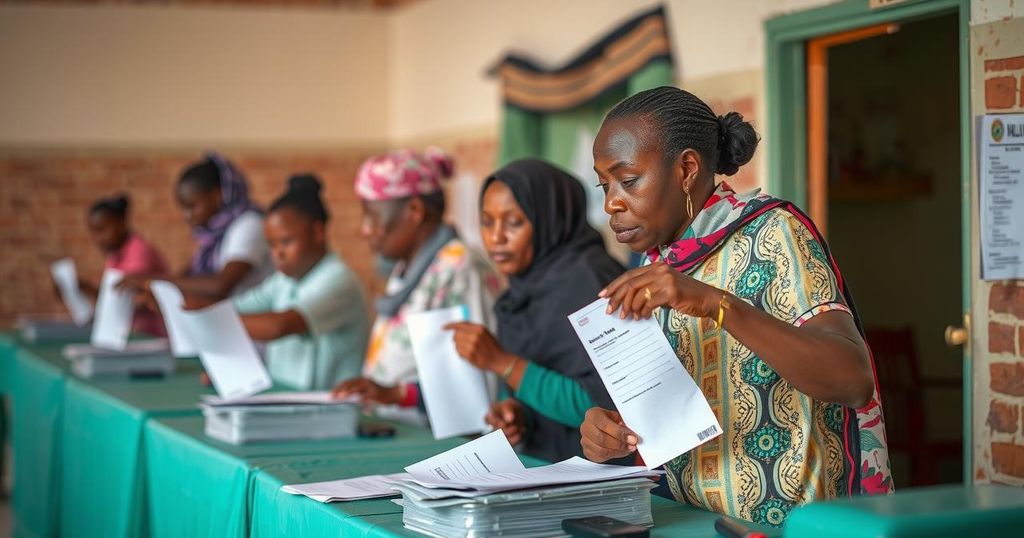Voting Commences in Controversial Chad Parliamentary Elections

Chad is conducting its first parliamentary elections in 13 years amidst a boycott from opposition parties who deem the process illegitimate. Early turnout appears low, with election officials attributing this to cold weather. The elections are framed by the government as a step towards democracy, amid ongoing social and economic issues faced by voters, particularly in the context of regional security threats.
Voting has commenced in Chad’s parliamentary election, which is being conducted for the first time in 13 years. This election, seen by the government as a vital move towards reducing military influence, invites voters to select members of parliament, provincial assemblies, and local councils. Notably, the opposition has called for a boycott of the elections, claiming that the results are predetermined.
In the capital, N’Djamena, early voter turnout appeared low, with election officials attributing this to unfavorable weather conditions. Opposition parties have urged the populace to refrain from participating, suggesting that the electoral process has been compromised, leaving an open path for candidates aligned with President Mahamat Idriss Deby Itno, who ascended to power following a military-led takeover in 2021 and subsequent legitimacy from a presidential election in May.
President Deby appealed to citizens via social media, encouraging mass voter participation, while opposition claims of electoral manipulation persisted. Succes Masra, leader of the opposition, expressed doubts about the election’s integrity, stating, “The fabricated results are already in the computers.” Meanwhile, some citizens, like 39-year-old Patrice Lumumba Deoumoundou, expressed hope for impactful change, citing issues such as job availability and social justice which remain unmet.
The electoral agency claims that turnout figures are high, reporting over 72 percent among military personnel and 54 percent among nomadic communities. Representatives from these communities emphasized their need for improved living conditions, particularly as climate change exacerbates their challenges. The electoral process is being overseen by international observers, ensuring transparency in these contested elections.
Concerns over electoral integrity were heightened when opposition party representatives reported an incident involving the disappearance of ballots intended for specific areas. As the elections unfold, they occur in a fraught context of regional instability, including violence from Boko Haram and the fallout from Chad’s military agreements with France. The government positions these elections as a crucial final step towards establishing a democratic framework after decades of authoritarian rule, following the recent leadership transition upon the death of Deby’s predecessor in 2021.
Chad has been under military rule for significant portions of its history, with the latest transitional governance established after the death of former President Idriss Deby. The current elections are framed as a pivotal moment towards restoring democracy within the nation. However, opposition parties have raised alarms about electoral fairness, suggesting a lack of genuine competition and transparency. The socio-economic context of Chad, one of the poorest countries globally, underscores the urgency for political reform, as citizens face challenges such as unemployment and climate-related hardships.
The ongoing parliamentary elections in Chad exemplify the country’s struggle towards democratic governance amidst widespread political contention and social challenges. With a significant portion of the population boycotting the elections, concerns regarding electoral integrity persist, casting doubt over the legitimacy of outcomes that are critical for the country’s future. The response from international observers and the local populace will be crucial in shaping the electoral landscape going forward.
Original Source: www.aljazeera.com







